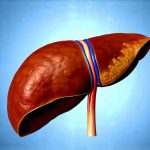Understanding Sleep’s Role in Healthy Liver Function
The liver is often hailed as the body’s detoxification powerhouse, diligently working 24/7 to filter toxins, metabolize nutrients, and maintain metabolic balance. We often focus on diet and exercise when considering liver health, but a crucial component frequently overlooked is sleep. It’s not merely about rest; sleep is an active physiological process deeply intertwined with nearly every organ system, including the liver. Insufficient or disrupted sleep can significantly compromise the liver’s ability to function optimally, leading to a cascade of negative consequences for overall health. Recognizing this connection isn’t simply about getting more hours in bed—it’s understanding how different stages of sleep impact specific hepatic processes and learning strategies to prioritize restorative rest.
The relationship between sleep and liver health is bidirectional: poor liver function can disrupt sleep patterns, while inadequate sleep exacerbates liver issues. This creates a vicious cycle that needs careful attention. Chronic conditions like Non-Alcoholic Fatty Liver Disease (NAFLD) are becoming increasingly prevalent, and research suggests strong links between sleep disturbances and its progression. It’s essential to understand this interplay so we can adopt lifestyle choices that support both restful nights and a thriving liver. This article will delve into the specific ways sleep impacts liver function, exploring the physiological mechanisms at play and offering insights into how prioritizing sleep can contribute to long-term hepatic well-being.
The Liver’s Nocturnal Activities: Why Sleep Matters
The liver doesn’t “switch off” during sleep; quite the opposite. Many essential restorative processes occur predominantly while we rest. During sleep, the liver focuses on glycogen synthesis – storing glucose for future energy needs. This process is heavily influenced by hormonal changes that take place overnight, particularly a decrease in cortisol (the stress hormone) and an increase in melatonin. Melatonin, often known as the “sleep hormone,” isn’t just about inducing drowsiness; it’s also a potent antioxidant and plays a role in regulating liver metabolism. Reduced sleep leads to increased cortisol levels, disrupting glycogen synthesis and promoting insulin resistance – both key contributors to fatty liver disease.
Furthermore, the liver actively repairs and regenerates itself during sleep. This is because cellular repair mechanisms are upregulated when the body isn’t preoccupied with daily activities like digestion or responding to stress. Growth hormone release peaks during deep sleep stages, further facilitating tissue repair and regeneration within the liver. A lack of sufficient deep sleep hinders this regenerative process, making the liver more vulnerable to damage from toxins and inflammation. Essentially, sleep provides a dedicated window for the liver to restore itself.
Chronic sleep deprivation also impacts hepatic detoxification pathways. The liver relies on specific enzymes to break down and eliminate harmful substances. Sleep loss can impair the function of these enzymes, leading to an accumulation of toxins within the body. This increased toxic load puts additional stress on the liver, further compromising its ability to perform its essential functions effectively.
Sleep Stages and Liver Health: A Deeper Dive
Different stages of sleep play distinct roles in supporting liver health. As mentioned previously, deep sleep (stages 3 & 4 Non-REM sleep) is crucial for tissue repair, regeneration, and hormonal regulation related to glucose metabolism. This stage allows the body to effectively clear metabolic waste products, including those processed by the liver. A deficiency in deep sleep can lead to increased inflammation and a higher risk of developing NAFLD.
Rapid Eye Movement (REM) sleep is also vital, though its role is slightly different. REM sleep is associated with cognitive function and emotional processing, but it also influences hepatic metabolism. Studies suggest that REM sleep helps regulate bile acid synthesis, which is essential for fat digestion and absorption. Disrupted REM sleep can affect this process, potentially contributing to lipid imbalances and liver dysfunction. – Improving sleep quality through consistent bedtime routines – Creating a dark, quiet, and cool sleep environment – Avoiding caffeine and alcohol before bed are all steps that support both REM and deep sleep cycles.
The Impact of Sleep Apnea on Liver Function
Sleep apnea, a condition characterized by repeated pauses in breathing during sleep, is strongly linked to liver disease. These interruptions in oxygen flow cause intermittent hypoxia (low blood oxygen levels) which stresses the liver and promotes inflammation. This chronic stress can lead to increased oxidative stress within the liver cells, damaging them over time. – Obstructive Sleep Apnea (OSA) is the most common type, where the upper airway becomes blocked during sleep. – Central Sleep Apnea occurs when the brain fails to signal muscles to breathe correctly.
People with sleep apnea often have higher rates of NAFLD and more severe liver fibrosis – scarring of the liver tissue. The repeated cycles of hypoxia also disrupt glucose metabolism and insulin sensitivity, further contributing to metabolic dysfunction and worsening liver health. Diagnosing and treating sleep apnea is therefore a critical step in managing and preventing liver disease. Treatment options include Continuous Positive Airway Pressure (CPAP) therapy and lifestyle modifications such as weight loss and avoiding alcohol before bed.
Circadian Rhythm Disruption & Hepatic Metabolism
Our bodies operate on internal biological clocks called circadian rhythms, which regulate various physiological processes, including sleep-wake cycles, hormone release, and metabolic functions. The liver has its own intrinsic circadian rhythm that governs its activity throughout the day and night. Disrupting this rhythm – through shift work, jet lag, or inconsistent sleep schedules – can significantly impact liver function. – Irregular sleep patterns interfere with the liver’s ability to effectively metabolize glucose and lipids. – Circadian disruption also impairs the detoxification pathways within the liver, leading to a build-up of toxins.
When our circadian rhythms are out of sync, it throws off hormonal balance, increasing cortisol levels during the night and decreasing melatonin production. This creates a vicious cycle that further exacerbates sleep disturbances and compromises liver health. Maintaining a consistent sleep schedule, even on weekends, is essential for synchronizing your internal clock and supporting optimal liver function. Simple steps like exposing yourself to natural light during the day and avoiding screen time before bed can also help regulate your circadian rhythm. Prioritizing sleep isn’t just about getting enough hours; it’s about timing those hours effectively to align with your body’s natural rhythms.


















